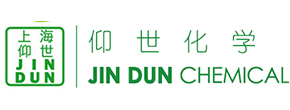Polyester plastic recycling process reduces non-renewable energy consumption by 70%
2023/6/29
PET plastics have brought great convenience to human life, but they also face problems such as high total consumption and difficulties in recycling. The degraded recycling of "waste beverage bottles to polyester textiles" can be achieved by the current mature PET recycling method. However, due to the limitations of technology and production cost, it is difficult to achieve recycling and upcycling in industry.
The researchers used acetic acid to depolymerize waste PET plastics, which undergoes a melt-dissolution-precipitation process in organic acids. Another product of the acetic acid depolymerization of PET is a third generation environmentally friendly strong solvent ethylene glycol diacetate with high added value. The acetic acid depolymerization of waste PET material preparation scheme is also economically attractive for the production of terephthalic acid and ethylene glycol diacetate, commonly used raw materials in industry.
On this basis, the researchers proposed a closed-loop "waste PET acetic acid depolymerization-polymerization and regeneration" technology and performed a life-cycle assessment of the process. The results show that the process reduces the non-renewable energy consumption and global warming potential by more than 70% and 40%, respectively, compared with the process of PET polyester production from fossil resources, and has the lowest environmental impact of all PET chemical recycling methods.
The results provide a new way to achieve closed-loop recycling of waste PET plastic and polyester fabric with lower industrial cost, stronger economic attractiveness, greener and lower carbon treatment process, and stronger tolerance to raw material sources.
It is reported that the research team has implemented preliminary kilogram-scale engineering experiments and has chosen acetic acid, the current solvent for industrial production of terephthalic acid, as the solvent for decomposing waste polyester at the beginning of the experimental design, drawing fully on current production equipment and process parameters. The research results are based on existing industrial equipment and can be quickly validated and replicated with relatively simple modifications.
JIN DUN CHEMICAL has built a special (meth) acrylic monomer manufacturing base in ZHEJIANG province. This makes sure the stable supply of HEMA, HPMA, HEA, HPA, GMA with high level quality. Our special acrylate monomers are widely used for thermosetting acrylic resins, crosslinkable emulsion polymers, acrylate anaerobic adhesive, two-component acrylate adhesive, solvent acrylate adhesive, emulsion acrylate adhesive, paper finishing agent and painting acrylic resins in adhesive.We have also developed the new and special (meth) acrylic monomers and derivatives. Such as the fluorinated acrylate monomers, It can be widely used in coating leveling agent, paints, inks, photosensitive resins, optical materials, fiber treatment, modifier for plastic or rubber field. We are aiming to be the top supplier in the field of special acrylate monomers, to share our rich experience with better quality products and professional service.

